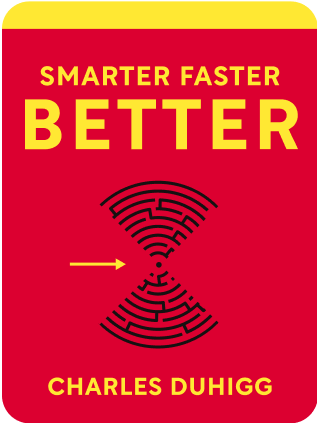

This article is an excerpt from the Shortform book guide to "Smarter Faster Better" by Charles Duhigg. Shortform has the world's best summaries and analyses of books you should be reading.
Like this article? Sign up for a free trial here .
Have you read the Smarter Faster Better book by Charles Duhigg? Do you know its eight principles for improving productivity?
The Smarter Faster Better book explores ways to boost personal and workplace productivity. It outlines how to build a productive team and combine different types of goals. It also tells how the makers of Disney’s Frozen avoided box-office disaster by innovating productively.
Read more for a brief introduction to the Smarter Faster Better book.
The Big Ideas of the Smarter Faster Better Book
Many of us wish that we could become more productive, or increase the productivity of our organization. However, it’s not always clear how to do this. You may believe that you simply need to work longer hours or push yourself to work harder. But doing so won’t necessarily increase your productivity. Instead, you need to make smarter decisions about how you motivate yourself, focus, set goals, and use data effectively.
In his Smarter Faster Better book, Charles Duhigg discusses eight principles that he believes are crucial to improving productivity. Six of these principles relate to improving your personal productivity. The final two principles address how you can improve the productivity of an organization.
The 4 Key Elements of Productivity
The Smarter Faster Better book explores the techniques that you can use to increase your productivity. But what does “being productive” actually entail?
Productivity can mean a lot of different things to different people. However, it commonly involves four key elements:
- Using your time and resources efficiently and effectively to meet your goals.
- Getting as much meaningful work done as possible in the shortest amount of time.
- Achieving your goals with as little wasted effort as possible.
- Working efficiently enough to leave room for some balance in your life; meeting your goals and getting your required work done while minimizing stress and leaving time for other things that are important to you, such as family or hobbies.
8 Principles That Are Crucial to Productivity
Charles Duhigg argues that becoming more productive doesn’t necessarily involve working for longer or pushing yourself to work harder and harder. Instead, he believes that it’s all about making smarter choices in certain areas of your life.
Each chapter of the Smarter Faster Better book covers one of eight concepts that are instrumental in boosting productivity. Six of those concepts relate to boosting your personal productivity:
- Finding motivation
- Maintaining focus
- Setting effective goals
- Making productive decisions
- Becoming a productive innovator
- Using data productively
Duhigg also explores two concepts that relate to organizational productivity: building a productive team and managing a productive workforce.
All eight concepts involve making behavioral decisions that help us and others to become smarter, faster, and better at our tasks: in short, more productive.
Charles Duhigg’s Smarter Faster Better book can help make this difference for you.

———End of Preview———
Like what you just read? Read the rest of the world's best book summary and analysis of Charles Duhigg's "Smarter Faster Better" at Shortform .
Here's what you'll find in our full Smarter Faster Better summary :
- Why becoming more productive isn’t about working longer hours or constantly pushing yourself to do more
- The 8 principles for improving productivity
- How to create a work culture in which each employee is truly valued






